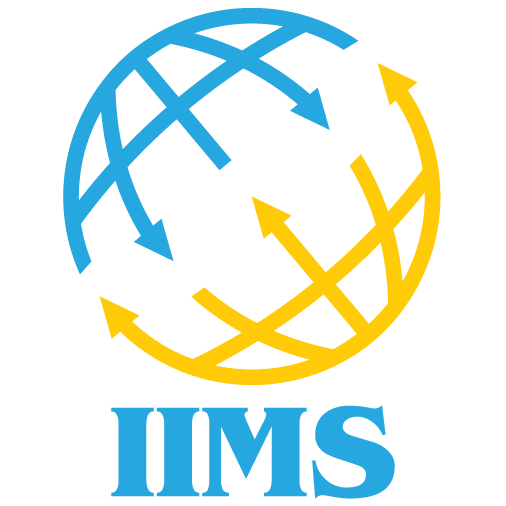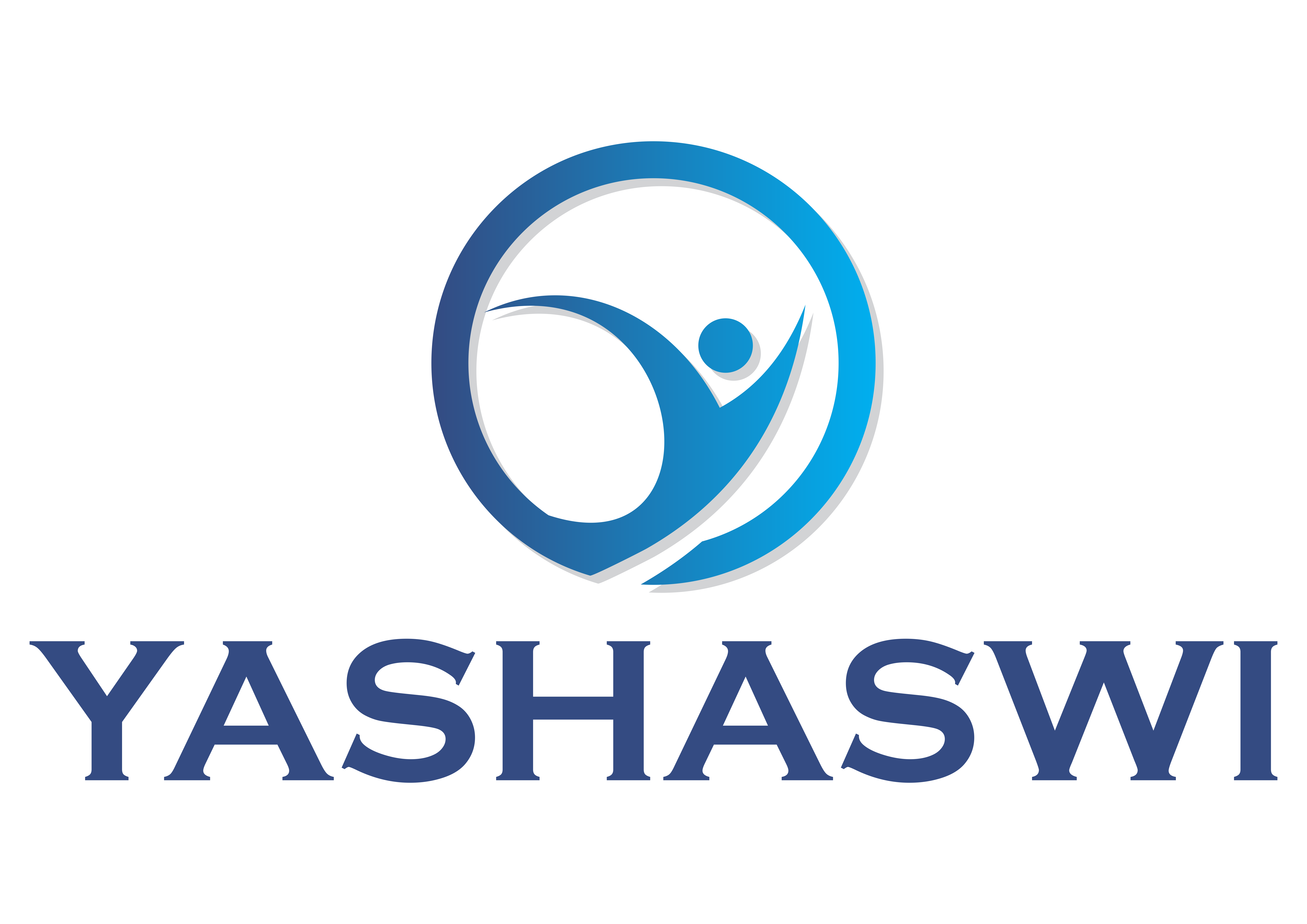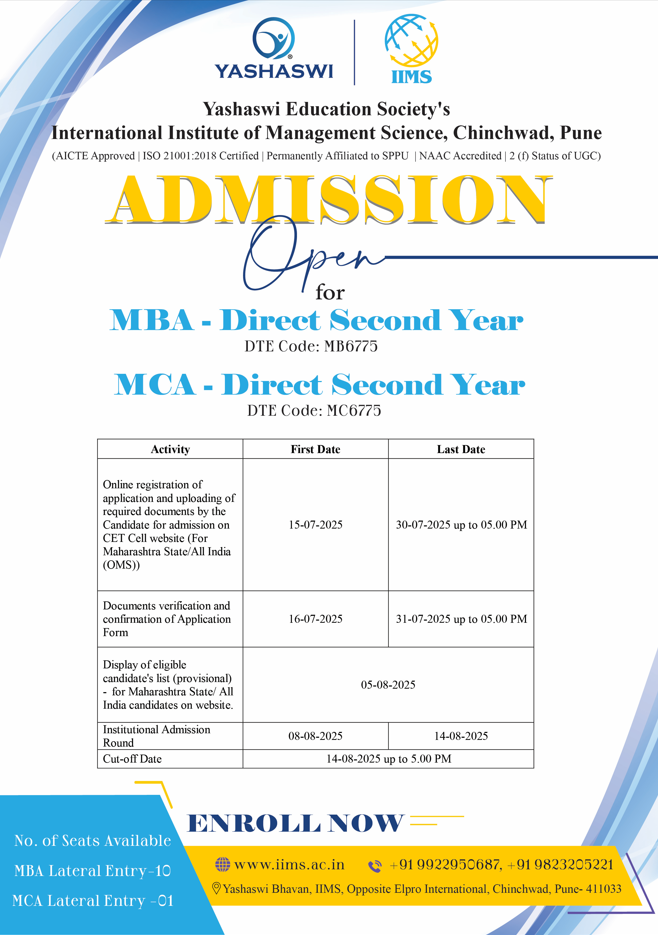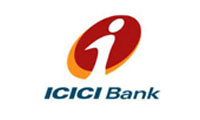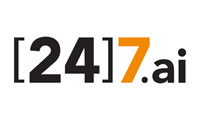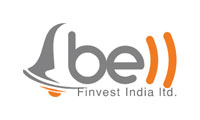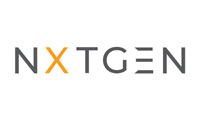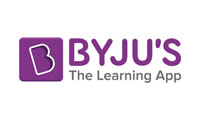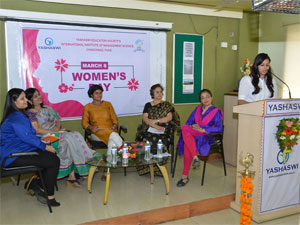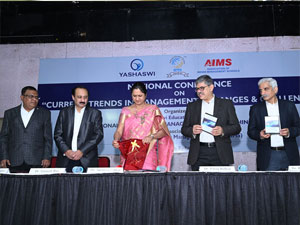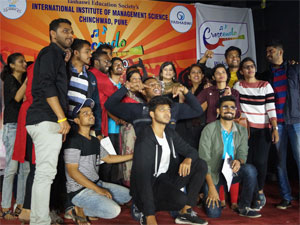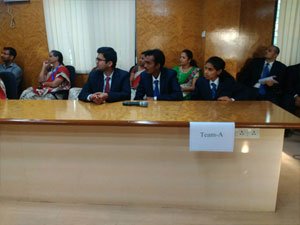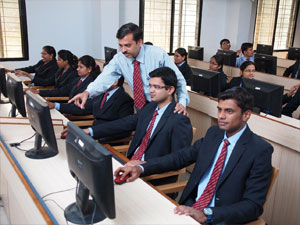Best Practice
Title: "Yashoprayash – Adopting Village Schools for Education Enhancement"
1. To involve students in the process of social upliftment and thereby developing leadership qualities among them.
2. To conduct programmes on awareness, personal hygiene, self-confidence and motivation to the students and teachers of the Zilla Parishad School.
3. To develop Professional Perspective through Experiential Learning in planning, organizing and decision-making.
Context:
The Institute has adopted a nearby Zilla Parishad Primary School. A good number of faculties and students have devoted themselves in doing professional and service activities for the Upliftment and betterment of the school. This community engagement by the Institute plays a vital role in exchange of knowledge resources and services with the proximate communities in the form of service learning during the student life of the students.
Practice Description:
• Faculty members and students take an active part in organizing various activities for the school students by visiting regularly to the school and interact with the school authorities and students.
• Environmental Activities like Tree Plantation and Session on Methods for Conservation of Water are planned as the area faces a serious drought situation in summers.
• Spiritual Activities like Session on Yoga and meditation is included for spiritual development.
• For Holistic development, Session on Soft Skills, Sessions like Good Touch and Bad Touch, Hygiene awareness, Health Awareness Camp, Moral Education, Life Skills Education, Fundamental Rights are arranged.
• IIMS has donated computers to the school for Curricular development and session on Computer Literacy are conducted.
• For Extra-Curricular development sessions like Coloring Competition is arranged. Session on Media Literacy, Civic Literacy, and Preparation for Competitive Exams are arranged
• The teachers are given trainings on the file management system, library management, investments, insurance, financial literacy and cyber security
Evidence of Success: As a result of continuous support and guidance activities in the school, the school has bagged “The Best School” Trophy which highlights the student and teacher contribution and the institute's contribution to the school's overall progress.
Problems Encountered and Resources Required:
As the School was 40 kms away from the Institute , it was difficult to include all the Students of the Institute during visit .Due to a very hectic academic session, the institute and students barely manage time to conduct more programs and researches in adopted school.
Title: "Yasho Gurukul – Mentor-Mentee Programme"
1.To provide guidance in learning process so as to make best use of facilities and resources made available to Mentee by the Institute
2.To provide personal counselling to improve the performance and reduce the stress of the students
3.To provide personal support to the Mentee through ups & downs of academia to reinforce a sense of resilience
4.To help mentee through academic, personal, professional as well as emotional support
Context:
The students at the Institute come from a wide range of socio-economic, cultural, and regional backgrounds. For many, this is their first experience of professional college life in the city, which can be quite stressful, particularly for those away from their families for the first time. These students often face additional challenges such as choosing a specialization (career option) and adjusting to the new environment.
These pressures can negatively impact their personal and academic growth as well as their physical and mental health. Students from educationally and financially disadvantaged backgrounds may feel isolated and hesitant to participate in class, which can hinder their performance. Given the student-teacher ratio in the classroom, providing individual attention can be challenging. To address these issues, the Institute has introduced a Mentorship Programme as a solution.
Practice Description:
Mentoring sessions are held regularly every Saturday and Wednesday from 4:00 PM to 5:00 PM, and attendance is mandatory for all students. One mentor is assigned for every twenty students.
The mentor monitors the mentee’s personal growth, including extracurricular activities, behavioral issues, and career-related challenges. The mentorship standards encompass academic performance, attendance, personal development, professional progress, and general criteria.
Mentors receive detailed information about their mentees' academic achievements, including attendance records, participation in value-added courses, completion of MOOCs, and results from mid-term and end-of-semester exams.
Evidence of Success: The success of the Mentorship Programme is evident through several key indicators:
a. Improved examination results
b. Increased student attendance and greater involvement in classroom activities
c. Reduced dropout rates
d. Higher participation in co-curricular and extracurricular activities
e. Respectful relationships between teachers and students
f. Better discipline and harmonious, friendly relationships among students
g. Higher quality internship projects and more student-authored research paper publications
h.Greater engagement with e-learning and self-learning platforms, even during the COVID-19 period
These results demonstrate the development of long-lasting relationships between staff and students. Through this initiative, the Institute has ensured the overall development of students and enhanced the commitment of staff members.
Problems Encountered and Resources Required:
Initially, some students were reserved and reluctant to open up. However, over time, staff members-built relationships of mutual trust and care, allowing students to feel comfortable sharing their issues and views with their mentors. The programme's focus on personalized attention required regular meetings and meticulous documentation. Despite challenges during the COVID-19 lockdown, the programme adapted by conducting online meetings and maintaining records on MS-Teams. Each mentor keeps a detailed file on individual mentees, documenting discussions from mentorship meetings.
Title: "Integrated Software Development for Enhanced Institutional Management"
1. To Provide students with practical, hands-on experience in software development by enhancing technical skills in programming languages, development tools, and methodologies.
2. Apply theoretical knowledge gained in classrooms to real-world projects.
Context:
The MCA Department at the Institute has established a Software Development Cell (SDC). The SDC oversees projects that give students the opportunity to work within an organized team structure and adhere to project timelines. Students benefit from experiencing various roles within a software development team, such as programmer, test lead, team lead, manager, and maintenance engineer. This exposure provides them with a comprehensive understanding of the entire software development lifecycle.
Practice Description:
The Students at the Institute have developed
a. Conference website – This website is maintained and updated regularly by the team of faculty and students.
b. Attendance Software – The attendance software works on precision of the attendance of the individual student across all sessions, subjects and semesters.
c. Mentor Mentee Software –Entire tracking of the mentee with respect to various courses, certifications is possible through this software.
d. ERP Software Development - ERP software works for development of LMS (Learning Management System) to share academic material for the remote access.The MCQ Test module, feedback and Project management module facilitate the automation.
Evidence of Success: The result is evident, as the students have built and successfully maintained its Research Journal Website and the Conference website. Both the website are live and can be traced using https://yashomanthan.co.in/ https://icimit.yashomanthan.co.in/. The Software developments are in progress and on the verge of completion.
Problems Encountered and Resources Required:
The Lack of skilled students much to the expectations of the challenges prevailing in development trends.
Upgraded hardware and software resources required for development.
Time constraint for the students due to hectic academic sessions.
Title: "E-Waste Collection Initiative"
1.To implement preventive and curative measures for the proper disposal of E-waste.
2.To raise awareness about E-waste management and its broader benefits.
3.To establish a public-academia partnership for the systematic execution of these practices.
Context:
Disposing of old, outdated, and non-working electronic items such as monitors, computers, keyboards, mice, power supplies, printers, and batteries poses a significant problem due to the hazardous materials they contain, like lithium, lead, and zinc. Improper disposal of these items can be harmful to living beings. To address this issue, the institute has partnered with Harshita Green Recyclers certified vendors for E-waste disposal. The electronic equipment slated for disposal is collected at a central storage location and then handed over to these certified vendors. The institute receives a certificate from the vendor, ensuring that the E-waste is disposed of according to prevailing norms without harming the environment.
Practice Description:
IIMS has an active MOU with Harshita Green Recyclers an E waste management Company.
The Institute has undertaken several initiatives for e waste management. The Institute collects E-waste (including any electrical and electronic equipment such as CDs, remote controls, chargers, etc.) from students, teachers, and staff from nearby Institutes and housing societies. The collected E-waste is handed over to Harshita Recyclers. The Organisation focuses on waste management and supports livelihood opportunities for waste collectors and other stakeholders. The collected E-waste is recycled and processed in an environmentally safe manner.
The Institute regularly contributes their E-waste to this initiative instead of selling it to scrap dealers.
Evidence of Success: IIMS has collected around 750 kg e waste material to be disposed of from academic institutes, corporates and households in nearby vicinity. IIMS has partnered with e waste management company which helps to manage and dispose of the collected waste.
Problems Encountered and Resources Required:
IIMS has faced challenges like limited awareness among stakeholders, reluctance to dispose of electronic devices properly, and logistical issues in coordinating with recycling agencies.
IIMS needs Resources like e-waste collection bins, educational materials, more collaboration with recycling agencies.

